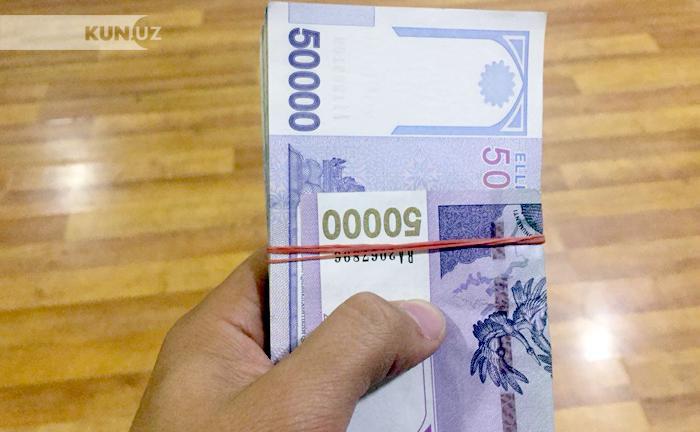Ministry of Finance discloses data on salaries of high-ranking officials in Uzbekistan

In accordance with the query of Gazeta.uz, the Ministry of Finance of the Republic of Uzbekistan has provided information on the monthly wages of government employees.
As stated in the law, in determining the salaries of employees in organizations and institutions financed from the budget, the tariff rates shall be applied in accordance with the single tariff network of the Labor remuneration scheme.
The following guidelines are set for executive positions:
Deputy and senator – 1 million 560 thousand 413 soums
Governor of the region – 1 million 899 thousand 783 soums
Governor of the district (city) – 1 million 643 thousand 329 soums
Deputy Prime Minister – 2 million 75 thousand 955 soums
Minister – 1 million 727 thousand 665 soums
Chairman of the Committee or Agency Director – 1 million 643 thousand 329 soums
These are just salaries. In addition to this amount, additional payouts can be given up to 115% from the budget. For example, if a deputy is paid 115% more, his salary will be 3 million 354 thousand 887 soums. Also, the above-mentioned wages can be increased by off-budget funds.
Additionally, the following additional payouts are identified:
· For particular working conditions – 20% of the salary (for deputies of Oliy Majlis and Senate, for khokims of regions (districts, cities);
· Coefficient of incentivizing the labor – 40% of the salary;
· For performing the full service term – 20-30% of the salary;
· For long service – 20-30% of the salary;
· Material incentives – 15 to 25% of the salary.
In exceptional cases, it is envisaged allocation of bonus (two times the salary) and financial aid (in the amount of one-time salary). Rewarding or disciplinary action should be enforced in the manner prescribed by law.
All the costs of remuneration of the above mentioned managerial positions are covered by the state budget.
Off-budget funds
Salaries of government employees can be increased by means of off-budgetary funds of ministries, state committees and agencies. Revenues from off-budget funds are formed by collections from state duties, levies and non-tax payments, administrative penalties and fiscal sanctions (Budget Code, Article 62).
These off-budgetary funds can be used to strengthen the material-technical basis of the offices, to provide financial incentives for staff and cover other expenses.
Related News

17:38 / 02.02.2026
Migration and uneven development widen regional income divide in Uzbekistan

14:19 / 27.01.2026
Average monthly wage in Uzbekistan rises to UZS 6.38 million

20:26 / 13.01.2026
Uzbekistan to raise salaries and benefits for military personnel from April

14:32 / 29.12.2025




